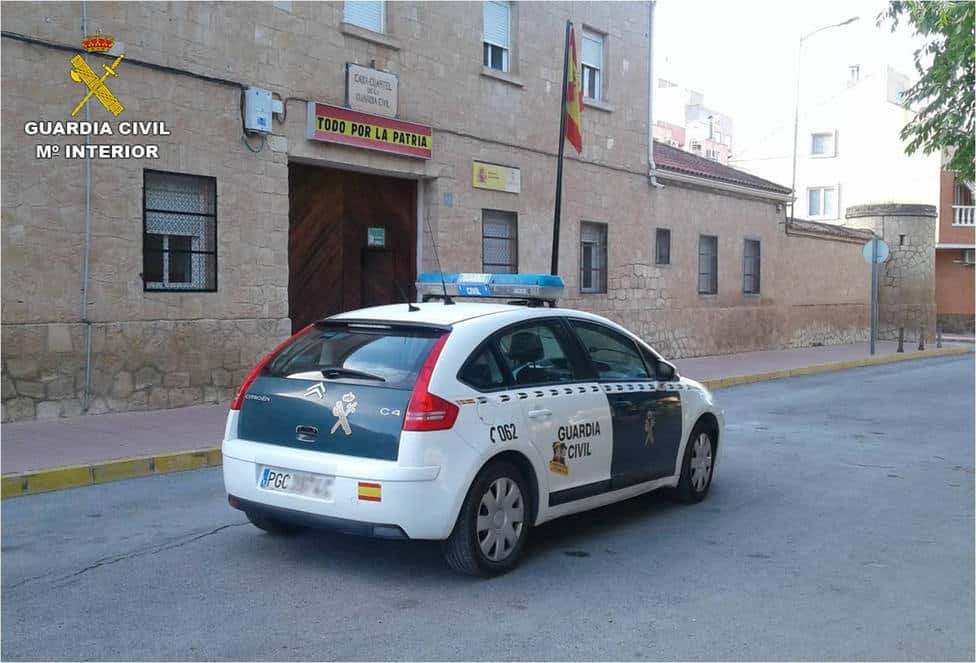Civil Guard officers in the Villena, Sax, Monóvar and Castalla police stations are having to take in fires from their homes to combat the overnight cold due to a lack of heating
The freezing temperatures that have been seen in the province during the last two weeks have once again highlighted the lack of means of the Civil Guard. A year after suffering the intense cold of the Storm Filomena and denouncing the authorities for a lack of heating devices in many of the Benemérita stations, the Spanish Association of Civil Guards (AEGC) is warning that the situation remains exactly the same.
If the agents want to work in a warm environment, without gloves, overcoats and scarves, they must resolve the problem themselves by taking in heaters of their own homes.
In the Villena police station, where the temperature dropped to minus 11.5 degrees, the guards have to change shivering in a locker room without any heating. The situation is the same in the reception areas and offices and neither is hot water.
The situation is the same in the Sax barracks, where the mercury has dropped to minus 5.3 degrees overnight, and where the freezing temperatures are suffered by both the guards and the public, as there is no heating in the reception areas. In fact, several people complained on Tuesday because they could not “hold out being in a refrigerator any longer,” referring to the waiting room.
Officers are particularly critical of the Sax accommodation because in summer the civil guards also suffer the suffocating heat with the mercury above 40 degrees without asingle air conditioner. They have therefore gone from extreme heat to severe cold in five months.
But these two stations are no exception. The guards and the public are also suffering in the Castalla barracks where, in recent nights in Monóvar, the agents have been forced to dress in changing rooms that barely reached two degrees, a problem that they also have to bear when they patrol since, in addition to official vehicles being insufficient, they are very old with high mileages, and where one of them has faulty heating.
Neither the guards nor their association, the AEGC, can understand why a problem that has been around for years has still not been solved. What’s more, in some of these barracks, still in their packaging, the Benemérita has the heat and cold pumps necessary to put an end to the problem, but since the required services cannot not paid for, the installer refuses to carry out any new work until he is paid.
So instead, officers will continue to bring in heating equipment and fires, none of it with the government’s health and safety authorisation or approval, to their police stations, giving an impression of apathy by the government and by their senior officers towards the men and women who provide this essential public service.





